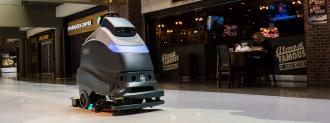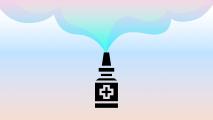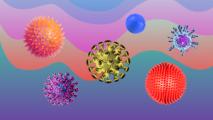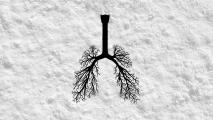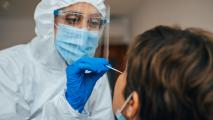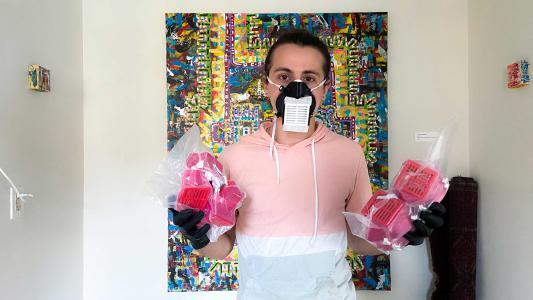The coronavirus pandemic has led to a more than 95% drop in air travel in the United States compared to one year ago, and some experts predict it’ll be a full five years before the aviation industry returns to its pre-pandemic levels.
In the hopes of expediting that rebound, Pittsburgh International Airport (PIT) has deployed a pair of autonomous cleaning robots that use ultraviolet (UV) light to kill microbes — an aggressive sanitation method never before used in a U.S. airport.
“Passengers don’t just want to see a clean airport — they want to know it’s clean and they want to know it’s safe,” Katherine Karolick, PIT’s senior vice president of information technology, told Blue Sky News.
“Ultraviolet robots have been used in hospitals as a way to disinfect and kill microorganisms,” she continued, “so it is definitely something that makes sense for an airport.”
PIT’s Ultraviolet Cleaning Robots
UV light kills viruses and other pathogens by destroying the molecular bonds that hold together the microbes’ DNA.
Research suggests that UV light can kill the novel coronavirus, which has led to its deployment against this coronavirus — the light is already being used to disinfect hospitals, buses, and even money.
Restoring confidence in travel is going to be key to the industry recovery.
Christina Cassotis
The cleaning robots now using UV light to sanitize the floors of PIT are modified versions of ones manufactured by Danish floor cleaning company Nilfisk.
The machines already feature artificial intelligence technology developed by Pittsburgh-based robotics firm Carnegie Robotics. For use at PIT, the company added a UV light fixture to two of the robots, giving them an extra layer of disinfecting power.
Researchers from the firm will test the floors at PIT after the cleaning robots pass over them to see if any microorganisms survive.
Meanwhile, the next step for the airport is to explore other uses for UV disinfecting tech, such as the sanitization of escalator handrails or elevator buttons.
Battling the Coronavirus in Airports
PIT may be the first airport in the U.S. to incorporate UV light into its cleaning regimen in response to the coronavirus pandemic, but it’s not the first worldwide.
Hong Kong International Airport deployed its own UV sanitization robots in early April, and airports in Shanghai, China, have been using UV light to disinfect luggage carts since February.
London’s Heathrow Airport recently announced its own plans to begin using UV light to disinfect security trays. And now Abu Dhabi International Airport says it will use UV sanitization robots as well.
In Pittsburgh, at least, the hope is that these aggressive sanitization methods will not only kill the coronavirus in airports, but also ease the minds of the travelers that airports so desperately need to entice.
“The health and safety of airport staff and the traveling public are always the top priorities,” Christina Cassotis, Allegheny County Airport Authority CEO, told Blue Sky. “We know that restoring confidence in travel is going to be key to the industry recovery.”
We’d love to hear from you! If you have a comment about this article or if you have a tip for a future Freethink story, please email us at tips@freethink.com.
